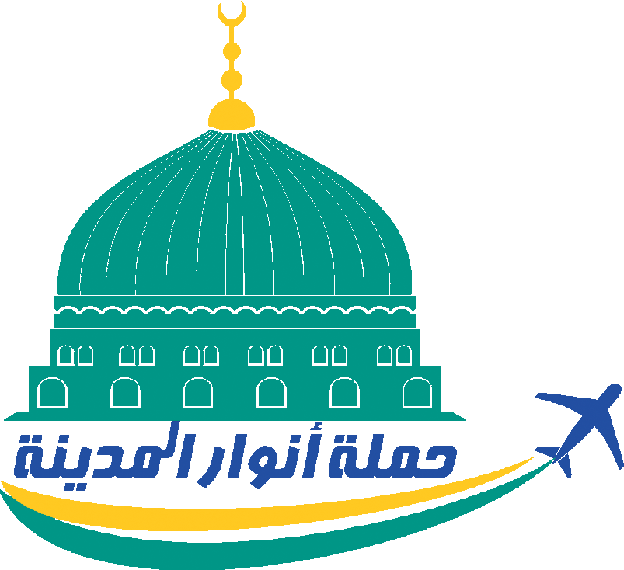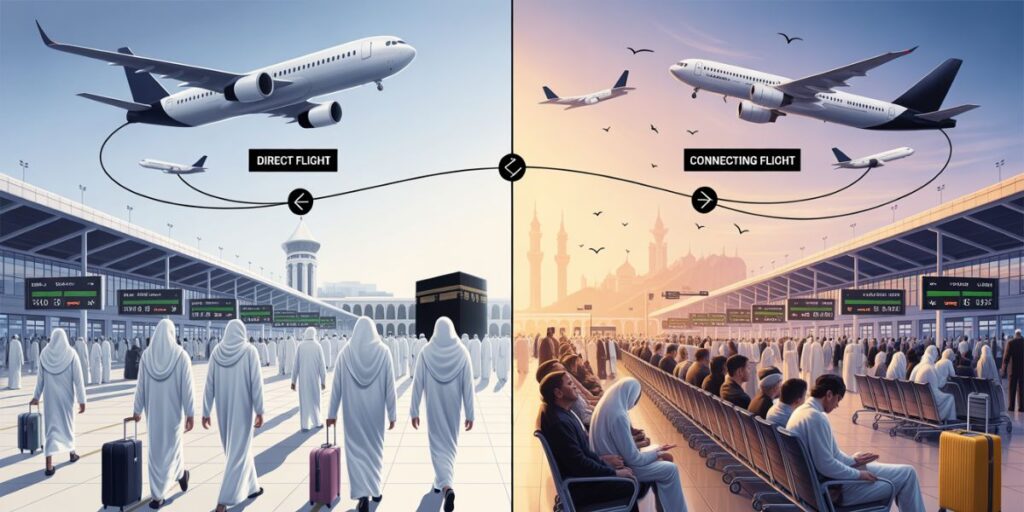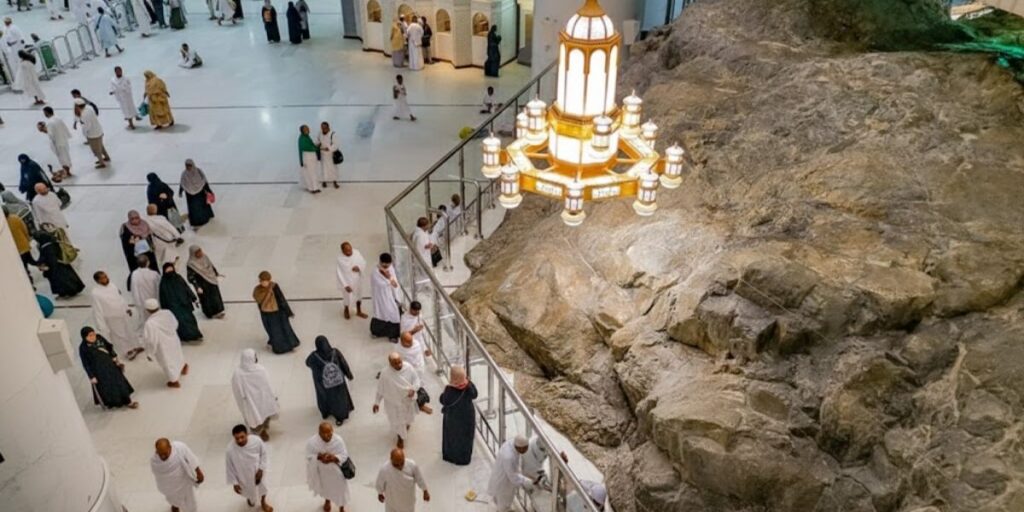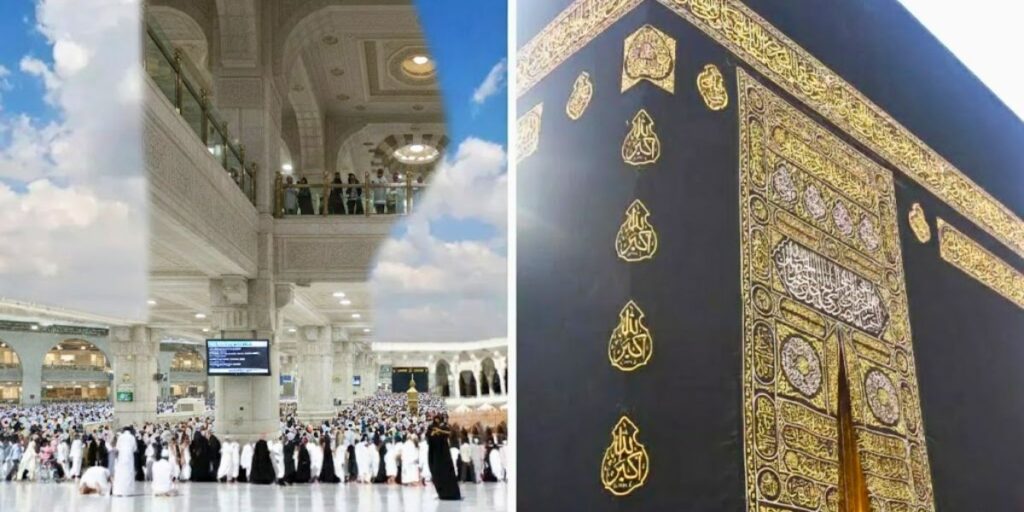When you are in the middle of your Hajj journey, your mind should be on your prayers and the spiritual weight of the moment. However, the physical reality of moving between Makkah, Mina, Muzdalifah, and Arafat can be a major challenge. With millions of people moving at the same time, finding cab services during hajj that are both reliable and safe becomes a top priority.
Planning your movements is just as important as knowing your rituals. Whether you are browsing hajj packages or already preparing for your 2026 departure, this guide will help you navigate the busy streets of the Holy Cities with ease.
Challenges Pilgrims Face with Hajj Transport
Moving through Makkah during the peak of the season is unlike traveling in any other city in the world. Even with the massive infrastructure improvements in 2026, the sheer volume of people creates unique hurdles.
- Road Closures: Many streets around the Masjid al-Haram are closed to private vehicles to prioritize pedestrian safety.
- Pricing Fluctuations: Some unlicensed drivers may try to charge high rates during the five days of Hajj.
- Navigation Struggles: If you aren’t familiar with the area, it is easy to get disoriented, especially when trying to find your way back to your specific tent in Mina.
- Wait Times: During peak hours, such as after the Jumu’ah prayer or during the movement from Arafat, finding an available ride can take a long time if you haven’t planned ahead.
Understanding these hajj transport options early on is a key part of your Complete Umrah and Hajj Preparation Guide for Pilgrims.
Types of Transportation Available During Hajj
In 2026, Saudi Arabia offers a tiered transport system designed to suit different needs and budgets.
1. The Al Mashaaer Al Mugaddassah Metro
This is the high-speed train connecting the holy sites. It is efficient but can be extremely crowded. It is best for those who are physically fit and traveling with very little luggage.
2. Government and Group Buses
Most pilgrims move via high-capacity buses organized by their specific Hajj missions. These are reliable but follow a strict group schedule, which might not offer the individual flexibility you need for certain trips.
3. Ride-Hailing Apps
Apps like Uber and Careem are very popular in Saudi Arabia. They provide transparent pricing and driver tracking. However, during the busiest days of Hajj, these apps may implement “surge pricing” or have limited availability near the Haram.
4. Registered Taxis and Private Cabs
Licensed white taxis are readily available, but for a more comfortable and personalized experience, many pilgrims opt for private cab services during hajj booked through their travel provider.
How to Identify Reliable Cab Services
When looking for the best cab service for pilgrims, you want more than just a car; you want a driver who understands the specific geography and strict rules of the Hajj season.
- Official Licensing: Always ensure the vehicle has the official Saudi transport authority decals. Unlicensed “private” cars are often stopped at checkpoints, which can lead to significant delays for you.
- Driver Knowledge: A reliable driver knows the “back routes” that remain open when major roads are blocked for pedestrian crowds.
- Communication: Being able to coordinate with your driver via a local phone number is vital for finding each other in crowded pickup zones.
- Upfront Pricing: Reliable services will give you a clear quote or use a digital meter. Avoid drivers who refuse to name a price until the trip is finished.
Safety Tips for Using Cabs During Hajj

Your safety is the most important part of your hajj travel arrangements. Here are a few practical hajj travel tips to keep in mind:
Verify the Vehicle and Driver
Before getting in, check that the license plate matches your booking. If you are using a street taxi, make sure the driver’s ID is visible on the dashboard as required by law.
Share Your Location
If you have a local SIM card with data, use the “Share Live Location” feature on your messaging app with a family member or someone in your travel group. This is a simple way to ensure people know where you are at all times.
Avoid Solo Travel Late at Night
While Makkah and Madinah are generally very safe, it is always better to travel in pairs or groups, especially if you are heading to a hotel or tent site that is far from the main crowded areas.
Watch the Checkpoints
During 2026, security measures are tighter than ever to ensure the safety of all pilgrims. It is vital to ensure your driver holds the proper permits to enter central zones and restricted holy sites. If a driver attempts to take an unusual or unofficial route to avoid a security checkpoint, politely ask them to stay on the main road.
Staying on the official path is the best way to keep your journey legal and stress-free. This is especially important for those who need to follow specific entry rules, such as those looking for a guide on how to get a Hajj visa from the UAE. By following official transport protocols, you protect your status and ensure your focus remains entirely on your worship.
Planning Travel in Advance
To secure safe cab services hajj, you cannot wait until you are standing on the sidewalk in the heat.
- Schedule Your Airport Transfers: Book your ride from Jeddah or Madinah airport at least 48 hours before you land.
- Coordinate with Your Group: If four people from your group are going to the same location, booking one large SUV is often more comfortable than trying to find separate small cars.
- Avoid Peak Rush Hours: If possible, try to move between sites 1–2 hours before or after the main mass movements.
For the latest updates on road closures and transit changes, keep an eye on official Saudi transport news and the essential guide for women preparing for Hajj. Staying informed through these official channels ensures you can adjust your travel schedule to avoid heavy traffic and reach the holy sites on time.
Benefits of Using Trusted Cab Services
Why bother with the extra effort of finding the best cab service for pilgrims?
- Conservation of Energy: Hajj is physically exhausting. Saving your legs by taking a reliable cab for long distances means you have more energy for Tawaf and Sa’ee.
- Time Efficiency: Professional drivers know which tunnels and bridges are open at specific times of the day.
- Peace of Mind: Knowing that a driver is waiting for you at a specific landmark reduces the anxiety of being lost in a crowd of millions.
At Three N Travel & Tourism LLC, we always tell our pilgrims that the best Hajj is the one where you can forget about the logistics and focus entirely on your relationship with Allah. By arranging your transport in advance, you remove a major source of stress from your journey.
Conclusion – Making the Journey Smoother
Proper transport planning is not just a convenience, it is a way to protect your health and your spiritual focus. By choosing the right cab services during hajj and staying aware of your surroundings, you ensure a smoother experience for yourself and your loved ones.
As you move through the holy sites in 2026, remember that every step is part of your worship. May your journey be safe, your heart be at peace, and your Hajj be accepted.













